Politics and Government: Organizations and Institutions
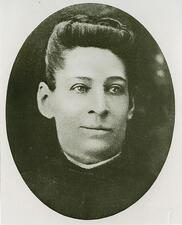
Frances Wisebart Jacobs
Francis Wisebart Jacobs helped transform the fledgling state of Colorado through her organization of charities and hospitals.

Jill Jacobs
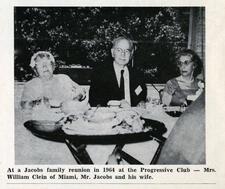
Rose Gell Jacobs
Janie Jacobson
Combining her Jewish background with her skill and penchant for writing, Janie Jacobson succeeded as a biblical playwright in the early twentieth century. The children’s plays she authored were performed nationally. In addition to being an accomplished writer, she was a talented musician and involved in Jewish social activism.
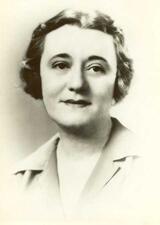
Laura Margolis Jarblum
Jewish Migrations to the United States in the Late Twentieth Century
Jewish Mothers of the Plaza de Mayo
The Jewish women who formed part of the Mothers of the Plaza de Mayo were pivotal to the human rights movement in Argentina, fighting for truth and justice for victims of the 1976-1983 dictatorship that resulted in 30,000 disappeared, tortured, and killed.
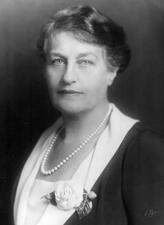
Jewish Museums in the United States
American Jewish women have played an outsized role in the foundation of Jewish museums all over the country. Barred from traditional spaces of power in the early twentieth century, many women—adjacent to power as Rebbetzins, philanthropists, and secretaries of libraries and other Jewish organizations—leveraged their connections to found new kinds of cultural institutions: museums.
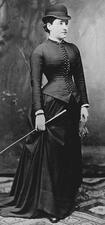
Juedischer Frauenbund (The League of Jewish Women)
Founded in 1904, The League of Jewish Women pursued secular German feminist goals while maintaining a strong sense of Jewish identity. The League supported vulnerable women through practical social reforms while fighting for political power within the German Jewish community. It saw employment opportunities as essential to women’s economic, psychological, and emotional independence.
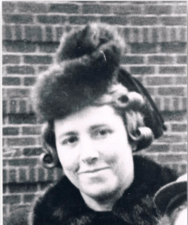
Irma Rothschild Jung
Irma Rothschild Jung, a native of Randegg, Baden, Germany, was born on July 1, 1897, and until her death close to a century later, dedicated her substantial energies to pioneering Jewish communal programs in aid of the needy. Her leadership and influence were deeply felt in the broader Jewish community by the countless individuals, young and old, who benefited from her generous spirit.
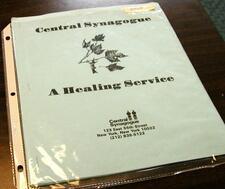
JWRC: Eleanor Leff Jewish Women's Resource Center
Dorothy C. Kahn
During the Great Depression, Dorothy C. Kahn helped pioneer social work as a service provided by the government to all who needed it. Kahn developed, implemented, and advocated for social welfare programs and policies whose underlying principles upheld her deepest beliefs about what social welfare could mean in a democracy.
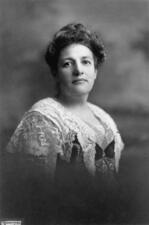
Florence Prag Kahn
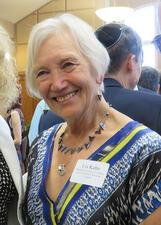
Lis Kahn
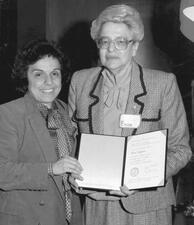
Aline Kaplan
As executive director of Hadassah, Aline Kaplan credited the organization’s success to the commitment of its volunteers, whose numbers grew to a staggering 370,000 during her tenure. In addition to her impact at Hadassah, she was also a board member in several Zionist organizations and a delegate to the World Zionist Congress.
Regina Kaplan
Regina “Kappy” Kaplan was nurse, teacher, hospital administrator, and health care innovator. Most notably, Kaplan helped break down gender barriers in medicine by creating the first nursing school in the South that admitted male students.
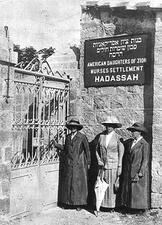
Rose Kaplan
Régine Karlin-Orfinger
Régine Karlin’s resistance activities would alone have warranted esteem and recognition, but she did not desist from further work. Totally bilingual in French and Dutch and even polyglot, since she was also proficient in both English and Russian, she had a brilliant career as a lawyer, characterized by her militant and unwavering support of causes that she considered just.
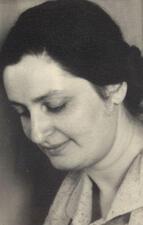
Hannah Karminski
During the mid-1920s and the 1930s in Germany, Hannah Karminski served as secretary of the League of Jewish Women and, from 1924 to 1938, as editor of its newsletter. After the forced liquidation of the League in 1938, Karminski remained in Germany and continued her work in the Reich Association of Jews in Germany, assisting with the kindertransports and welfare. She was deported to Auschwitz and murdered in 1942.
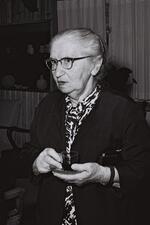
Rahel Katznelson

Shulamith Katznelson
Shulamith Katznelson helped make Israel a home for a wider range of people as both a pioneer of Hebrew-immersion programs and an advocate for Israeli-Palestinian dialogue.

Rhoda Kaufman
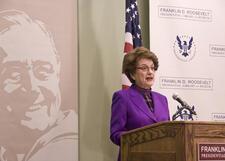
Judith S. Kaye
Judith S. Kaye was the first woman to serve as chief judge of the state of New York and chief judge of the Court of Appeals of the state of New York.

Kibbutz Ha-Dati Movement (1929-1948)
Beginning in 1929, the religious kibbutz (Kibbutz Ha-Dati) movement represented the confluence of progressive ideals of equality and collectivism and traditional customs of Judaism. As a result, women in the movement lived at a crossroads.


